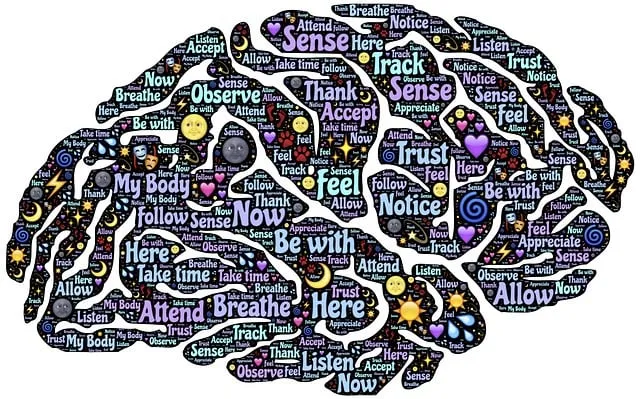Littleton Kaiser Permanente behavioral health services prioritize mental wellness through innovative self-assessment tools. These tools, developed by experts, integrate evidence-based practices like Compassion Cultivation and risk assessment techniques for accurate symptom evaluation. Implemented within a holistic framework, they empower individuals to proactively address emotional well-being concerns, such as anxiety or depression. Success is measured beyond data, incorporating patient feedback and clinical outcomes to ensure personalized care, continuous improvement, and alignment with best practices in behavioral health management.
Mental wellness self-assessment tools play a pivotal role in enhancing access to care and personal growth. With increasing demand for behavioral health services, particularly within integrated healthcare systems like Kaiser Permanente, these tools empower individuals to proactively manage their mental well-being. This article explores the development of effective self-assessment tools, highlighting successful implementations at Littleton Medical Center, focusing on strategies that have improved patient engagement and clinical outcomes in the context of Littleton Kaiser Permanente’s behavioral health services.
- Understanding the Need for Self-Assessment Tools in Behavioral Health
- Designing Effective Mental Wellness Self-Assessment Tools
- Implementing and Integrating Self-Assessment within Kaiser Permanente's Framework
- Measuring Success and Continuous Improvement at Littleton Medical Center
Understanding the Need for Self-Assessment Tools in Behavioral Health

In today’s fast-paced world, maintaining mental wellness is more crucial than ever. Littleton Kaiser Permanente behavioral health services recognize the growing need for accessible and effective self-assessment tools to support individuals in their journey towards better mental health. These tools play a pivotal role in empowering people to take an active role in understanding and managing their own well-being. By promoting self-awareness, they encourage proactive behavior changes, fostering resilience against behavioral health challenges.
Self-assessment tools are essential resources for both individuals seeking personal growth and healthcare providers aiming to offer comprehensive care. They facilitate the early detection of mental health issues, enabling timely interventions such as crisis intervention guidance and positive thinking strategies. Moreover, these tools contribute to enhancing cultural competency among healthcare providers through targeted training, ensuring sensitive and effective support tailored to diverse populations.
Designing Effective Mental Wellness Self-Assessment Tools

Designing effective mental wellness self-assessment tools is a meticulous process that integrates best practices from behavioral health experts like those at Littleton Kaiser Permanente. These tools must be tailored to assess not just symptoms but also underlying factors influencing an individual’s mental well-being. Incorporating evidence-based methods such as Compassion Cultivation Practices can enhance the accuracy and usefulness of assessments by fostering self-awareness and empathy, crucial aspects in understanding complex emotional landscapes.
Additionally, integrating risk assessment techniques, akin to those employed by mental health professionals, allows for early identification of potential issues. This proactive approach is enhanced by conflict resolution techniques, ensuring that assessment results are interpreted within a supportive framework. By combining these elements, self-assessment tools can be designed to not only evaluate mental wellness but also provide guidance and resources for personal growth and resilience.
Implementing and Integrating Self-Assessment within Kaiser Permanente's Framework

Implementing self-assessment tools within Kaiser Permanente’s comprehensive framework is a strategic move to enhance the delivery of behavioral health services in Littleton. These assessments serve as powerful resources, enabling individuals to actively participate in their mental wellness journey. By integrating user-friendly and evidence-based questionnaires, patients can gain valuable insights into their emotional well-being. This proactive approach not only facilitates early intervention but also empowers them with knowledge about potential issues like anxiety or depression.
The self-assessment process aligns perfectly with Kaiser Permanente’s commitment to holistic healthcare. Following the assessment, patients can access tailored communication strategies and resources, ensuring a personalized experience. This integration allows for more effective prevention measures, as users can identify risk factors and seek guidance on managing stress and improving overall mental health. Through this method, Kaiser Permanente’s behavioral health services in Littleton aim to create an engaging and supportive environment, promoting positive changes in the lives of those seeking support.
Measuring Success and Continuous Improvement at Littleton Medical Center

At Littleton Medical Center, measuring success in mental wellness self-assessment tool development goes beyond simple numbers and statistics. It encompasses a holistic approach that includes patient feedback, clinical outcomes, and improvements in key areas such as self-awareness exercises, coping skills development, and social skills training. By integrating these metrics, the center aims to ensure that its behavioral health services under the Littleton Kaiser Permanente banner are not just effective but also tailored to individual needs.
Continuous improvement is a cornerstone of this process. Regular reviews of patient data, coupled with direct communication with individuals who have used the tools, help identify areas for enhancement. This feedback loop enables the center to refine and adapt its self-assessment tools, ensuring they remain relevant, effective, and aligned with best practices in behavioral health management.
The development of mental wellness self-assessment tools is a vital step in enhancing access to behavioral health services, as evidenced by initiatives like those seen at Littleton Medical Center and within Kaiser Permanente’s framework. By implementing these tools, individuals can proactively monitor their mental well-being, facilitating early intervention and personalized care. This approach aligns with the growing recognition of self-assessment as a powerful tool in behavioral healthcare, ultimately contributing to improved outcomes for folks seeking support through services like those offered by Littleton Kaiser Permanente.






